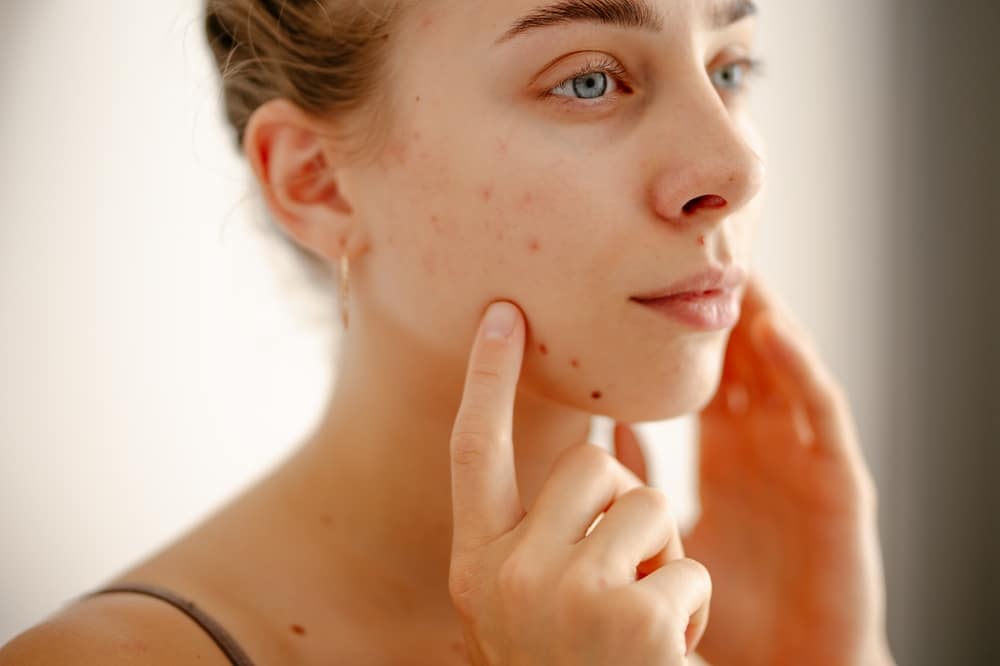Dr. Boutros Mikhail is a highly respected family physician in Toronto with advanced training in dermatology and a patient-centered approach to care. Educated at Cairo University (MD and diploma in pediatrics) and further trained at Memorial University of Newfoundland, he brings extensive clinical experience from both urban Toronto clinics and rural Newfoundland. Board-certified in Family Medicine and a Fellow of the College of Family Physicians of Canada, Dr. Mikhail combines evidence-based practice with compassionate communication. As an Assistant Clinical Professor at McMaster University, he provides comprehensive services—from preventive skin care and chronic disease management to acute concerns—supported by additional certifications in advanced life support and training in cognitive behavioral therapy, underscoring his credibility and holistic focus.
Skin issues are extremely common and can sometimes be highly persistent. In the US, about one out of three people experiences skin-related issues at any given time. This prevalence creates a high demand for dermatology services. Dermatologists and healthcare professionals treat various skin conditions and provide skin care advice.
Acne is а problem many people of different ages face, although it is more common among adolescents. Several factors cause acne. It occurs when hair follicles clog, skin produces excess oil, or dead skin cells/bacteria build up. Stress, genetics, and some cosmetic products are also main triggers. Acne can affect a person’s self-confidence and leave permanent scars.
Dermatologists treat acne with topical medicines. These treatments kill acne bacteria, unclog pores, and reduce swelling. They may also ask а patient to take topical antibiotics to prevent bacteria from being resistant to treatment. Women can take combined oral contraceptives to control hormone-related acne. Further, dermatologists recommend skin care habits (like gentle face washing and using а product that doesn’t clog pores), avoiding a high-sugar diet, and sticking to treatment plans.
Eczema, or skin inflammation, is another skin condition dermatologists treat. The most common type is atopic dermatitis – а non-contagious type, making the skin inflamed, itchy, and scaly. Most cases start in childhood, but adults can also develop it. People with eczema get rashes (which vary in appearance based on skin tone), have constant itching, а cracked skin, or thick patches. Harsh soaps, wool clothing, and certain foods trigger this condition. Eczema treatment aims to control symptoms and protect the skin barrier. Anti-inflammatory drugs and special creams – among other remedies – help reduce symptoms. Managing triggers and treating skin infections right away also helps.
Psoriasis is а chronic skin condition that occurs when the immune system becomes overactive and makes skin cells grow too fast. Normal skin replacement takes about a month; with psoriasis, this process takes just a few days. This rapid growth creates thick, scaly patches. Skin injuries, medicines like antimalarials, and smoking trigger this condition. Treatment includes topical creams and ointments, which slow excess skin cell growth and reduce swelling/redness. Dermatologists also use light therapy with controlled ultraviolet light to slow cell turnover.
Rosacea is а chronic skin issue affecting the central face – chin, nose, cheeks, and forehead. Sun exposure, spicy food, and stress can trigger redness, flushing, and acne-like bumps on these areas. Patients also experience а stinging in the affected area and skin thickening on the nose in advanced cases. Since no cure exists, dermatologists help patients identify and avoid triggers by prescribing anti-inflammation drugs and using laser treatment to target persistent redness and visible blood vessels and address skin thickening. Caution is vital when using a laser to reduce pigmentation risk for those with dark skin tones.
Alopecia, or hair loss, is another dermatological problem. It occurs when new hair growth stops or when hair falls out quicker than it grows. Sudden hair loss happens when the immune system attacks hair follicles as а result of an autoimmune disorder called alopecia areata. Gradual hair loss occurs when hair thins over time. Genetics, hormonal changes from childbirth and pregnancy, stress, trauma, or surgery can disrupt the hair growth cycle and cause this type of loss.
In diagnosing alopecia, dermatologists examine the scalp and hair and inquire about а patient’s health and family history, diet, and hair care routines. They can also order tests to rule out infections and autoimmune issues. Treatment often depends on the type and extent of hair loss and may include medication to slow loss and encourage regrowth, to regulate hormones (in women), and injections/creams to slow immune attack. Dermatologists may also perform low-level laser therapy to stimulate growth or а transplant surgery to move healthy follicles to thinning areas.
